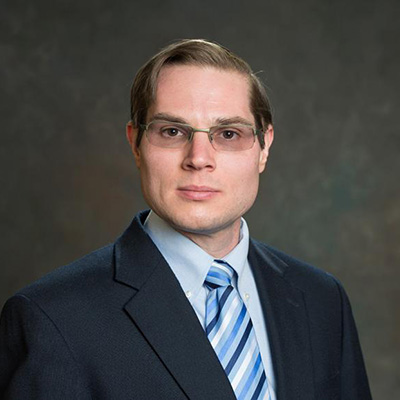Member
 |
Dr. Peter J. Hawrylak |
|---|---|
| Associate Professor, Electrical and Computer Engineering, University of Tulsa | Group website |
| OKPVRI Member | Email: peter-hawrylak@utulsa.edu |
Dr. Peter J. Hawrylak’s research encompasses the areas of RFID (radio frequency identification), security for low-power wireless devices, Internet of Things (IoT) applications, and digital design. His research focuses on developing energy harvesting solutions for battery-less sensors and actuators in small form factors and how to apply these technologies in a collaborative manner. Powering such devices in difficult scenarios, including in vivo, remote locations, or harsh operating conditions, over long periods of time is a multifaceted problem. Hawrylak’s approach is to employ a variety of energy harvesting means to power such devices, instead of relying on a battery to power the device, and thus enabling their use in these difficult operating conditions for long periods of time. Energy harvesting technologies investigated include photovoltaic (PV), radio frequency, thermal, and piezoelectric.
How to secure such a systems is an open question because these types of systems do not have the computational capabilities to support traditional security features. The limited security resources introduce several new attack vectors, including the “Energy Draining Attack” where the goal is not to compromise the system through traditional means, but to simply drain its operating energy so it cannot function, in effect a “denial of device attack”.
Recent Publications
- Cook, T. Shaw, P. Hawrylak, and J. Hale, “Scalable Attack Graph Generation,” in Proceedings of the 11th Annual Cyber and Information Security Research Conference, Oak Ridge, TN, 2016, article no. 21.
- Smith, W. Caruthers, D. Stewart, P. Hawrylak, and J. Hale, “Network Modeling for Security Analytics,” in Proceedings of the 11th Annual Cyber and Information Security Research Conference, Oak Ridge, TN, 2016, article no. 22.
- J. Hawrylak, W. Nichols, X. Li, T. Johannes, R. DeCook, K. Mongold, C. Cornell, L. A. Flint, and A. Singh, “HydroSense: A Self-Powered Wireless Device for Monitoring Water Usage in Hotel Showers,” in IEEE Global Humanitarian Technology Conference, Seattle, WA., 2015, pp. 314-320.
- Nivethan, M. Papa, and P. Hawrylak, “Modeling and simulation of electric power substation employing an IEC 61850 network,” 9th Cyber and Information Security Research Conference, Oak Ridge, TN, pp. 89-92, Apr. 8-10, 2014.
- Louthan, M. Haney, P. Hardwicke, P. Hawrylak, and J. Hale, “Hybrid Extensions for Stateful Attack Graphs,” 9th Cyber and Information Security Research Conference, Oak Ridge, TN, pp. 101-104, Apr. 8-10, 2014.
Invited Book Chapter (peer-reviewed)
- P. Hari and A. Kaphle, Investigations on Cobalt Doped Nanostructured ZnO/p-Si Heterojunctions for Energy Conversion Devices, Nanomaterials and Nanotechnology, Chapter 4, One Central Press, UK (Accepted for Publication, In press, To be published in October 2016)
Recent Presentations
- Oklahoma Supercomputing Symposium 2015, “Building an Exotic HPC Ecosystem at The University of Tulsa,” Norman, OK, Sept. 23, 2015.
- NASA Experimental Programs to Stimulate Cometitive Research (EPSCoR) NASA Glenn Research Center (GRC) – Ohio Aerospace Institute (OAI) Power and Energy Forum, “A Nanostructured Energy Harvesting and Storage System for Space and Terrestrial Applications,” Cleveland, OH, July 23 – July 24, 2015.
Student Information
Current Graduate Students: 8
Current Undergraduate Students: 5
